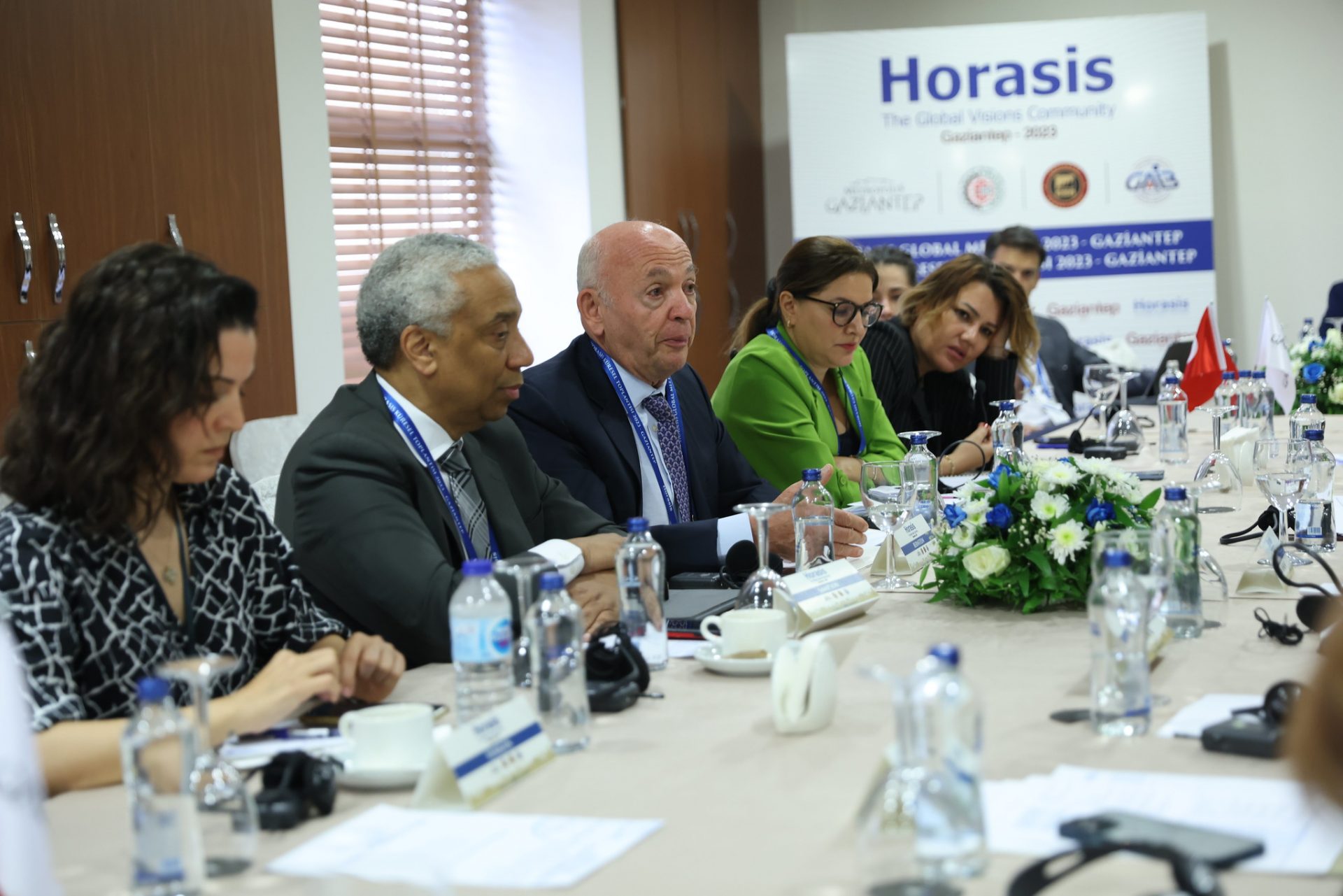Global Surgery: A Vital Part of the Global Health Ecosystem
The Global Surgery panel’s goal was to raise awareness of the critical importance of access to quality, safe, and affordable essential surgery in sustaining people who are the engines of economic growth. It is a goal that meshes perfectly with the overall objective of the Horasis Community itself—the importance of well-being, education, resilience, and economic productivity of people.
The panel’s moderator, James Bernstein defined the term “Global Surgery” as 1) the enterprise and health system that provides improved and equitable surgical care and anesthesia to the world’s population and 2) which focuses on the essential tenets of need, access, and quality. James Bernstein shared the following statistics showing the overwhelming need and costs of a lack of safe essential surgery.
• Five billion people around the world lack access to safe surgery.
• 150 million surgical procedures a year are not done that need to be.
• Of 300 million procedures that are done globally, only 3% are done in Sub-Saharan Africa (SSA), which contains 1.8 billion people today 23% of the world’s population) and is projected to increase by another one billion by 2050.
• In many parts of the world, people must travel great distances—up to 150 km—for surgery, which leads to increased mortality and surgical complications.
• Women getting a Cesarean section in SSA are 100 times more likely to die than women in the developed world.
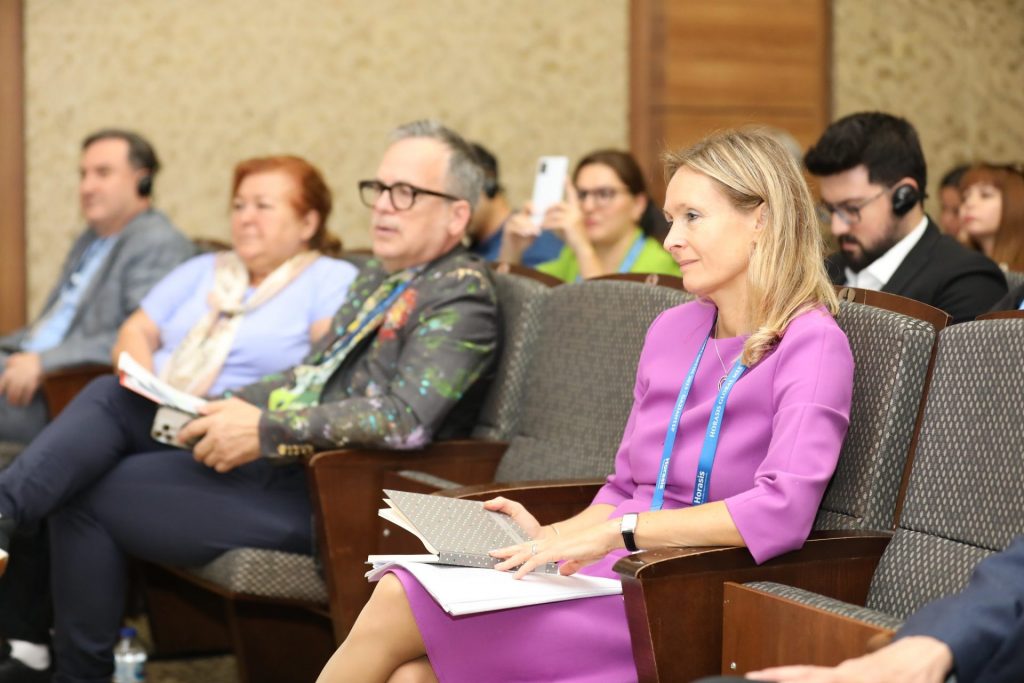
Natacha Theytaz, President Turkey, Novartis, Türkiye
James Bernstein noted that this sobering data is more than a global health catastrophe; it is also an economic one. “Simple, safe surgical procedures can reduce an estimated 30% of the global economic burden from all diseases,” he said, adding that “globally, the loss to GDP from the lack of safe surgery is estimated at $20 trillion annually with $12 trillion coming from Sub-Saharan Africa alone.”
Fellow panelist Jakub Gajewski, Director of Research at the Royal College of Surgeons of Ireland (RCSI), described his efforts to strengthen health systems in Sub-Saharan African countries like Malawi. He focussed on the need for training non-doctors in surgery, which he has done successfully to the BSc level.
“There is an enormous need for pediatric surgery in SSA which can only be met in the short term with the development and expansion of alternative training and service delivery models which do not depend on surgical specialists.”

Aygen Yenigun, Founder and CEO of Healthy Türkiye, Türkiye
Another distinguished panelist, Robert Graf, Chief Executive Officer, Fine Aesthetics, Switzerland, and the force behind Swiss-Himalayan Amity, which supports education, health care, and reforestation in the Indian Himalayas, provided lucid confirmation of the need for global surgery in austere locations such as Uttarakhand, based on his many years of travel and service.
Robert Graf engaged in a dialogue with Levent Elbeyli, Head of the Department of Thoracic Surgery at the SANKO University Faculty of Medicine in Gaziantep. He compared his experience in India to demonstrate that global surgery is much more than just operating. “The night before, I must prepare the operating room. I am on my hands and knees scrubbing the floor,” he said, listing a variety of pre-and post-operative preparation and care that he personally carries out before and after each procedure. Levent Elbeyli described his world as being completely different. Looking at his watch, he informed his fellow panelists and audience that he was scheduled to perform a complicated operation just one hour after the end of the panel and that everything would be prepared and waiting for him! “I am so grateful that SANKO Hospital has electricity, water, modern technology, and skilled anesthesiologists, one of whom came with me today.”
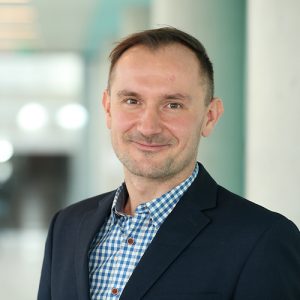
Jakub Gajewski, Director, RCSI Institute of Global Surgery Research Program, Ireland
Another expert panelist was John Sampson, Associate Professor of Anesthesiology and Critical Care Medicine, Founder and CEO of the Institute for Global Perioperative Care, who highlighted the acute shortage of anesthesiologists in SSA. “It may be hard to fathom, but in many African countries with populations in the millions, there are zero, one or two trained anesthesiologists for the entire country,” he said. John Sampson described one program he has spearheaded to start residency training programs in those countries. Upfront costs are substantial, he acknowledged, but very efficient over the long run, as these trained specialists fan out and teach others, making the program a true example of sustainability. Natacha Theytaz, President of Novartis Turkey, attending the panel, agreed that the sum was paltry compared to the outcome generated and was an excellent impact investment.
In fact, John Sampson’s program can be compared—in a good sense—to a virus because training just one anesthesiologist can lead to the rapid training of many more. With some upfront investment, he said, knowledge, expertise—and better health outcomes—can spread rapidly! John Sampson then highlighted an additional problem that can prevent safe surgeries: insufficient critical gas and medical oxygen supplies. The current strategy to address this by the World Bank and others is to provide oxygen-generating plants that are not energy efficient and strain the operating budgets of hospitals. Dr. Sampson is connecting solar panel manufacturers with energy-efficient medical oxygen generators built in the US to provide not only medical oxygen but vital suction piped throughout hospitals in Liberia, Gambia, and Sierra Leone using technical support from Ghana to implement the projects. The panel agreed that this was an instructive example of the need for resilient, energy-independent solutions for global problems like surgery and the catalytic value of collaboration. James Bernstein—whose company makes a surgical instrument sterilizer that uses no electricity, heat, or water— mentioned that the World Bank has produced a lengthy report on electricity and healthcare in emerging markets emphasizing the critical importance of energy-efficient solutions.
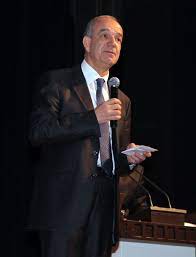
Levent Elbeyli, Head of the Department of Thoracic Surgery, SANKO University Faculty of Medicine
Aygen Yenigun, Founder and CEO of Healthy Turkey, noted the steady stream of African patients that come to Turkey for safe surgeries as daily proof of the overwhelming and urgent need to bring safe surgeries to Africa. This trend was confirmed by Illknur Cevik, Co-founder of Go Clinic, Turkey, which provides surgery for foreigners.
That our panel achieved its goal can be seen in the immediate activity of its members upon returning home. Here are two examples:
Robert Graf: “Through our panel, I have been diving into Global Surgery, and the more I work myself into it, the more I am convinced to be able to change even more in Uttarakhand.” He lists six specific efforts that he will undertake.
Aygen Yenigun: “I learned a lot in such a short time. Even though I thought that only I was new to the concept of global surgery, I am now surprised to see that it is not known among my partners either. Thank you once again for introducing me to this new vision. I have been trying to develop collaboration among my Turkish and African partners for the same cause without even realizing it. I hope that we will succeed.”
As the panel Chair, I have a few closing thoughts. I am a surgeon dedicated through Eniware to making safe, essential surgery available to everyone. This necessary outcome will only happen with the private sector’s significant investments in innovation, training, infrastructure, and health system development. Until this sector fully appreciates the value of building a surgical system, it will be a long, slow slog. I hope each of you in the Horasis Community will follow the infection model by spreading the word about global surgery and its importance to our collective well-being to two or three people who will convey the message to two more people until global surgery becomes a reality!
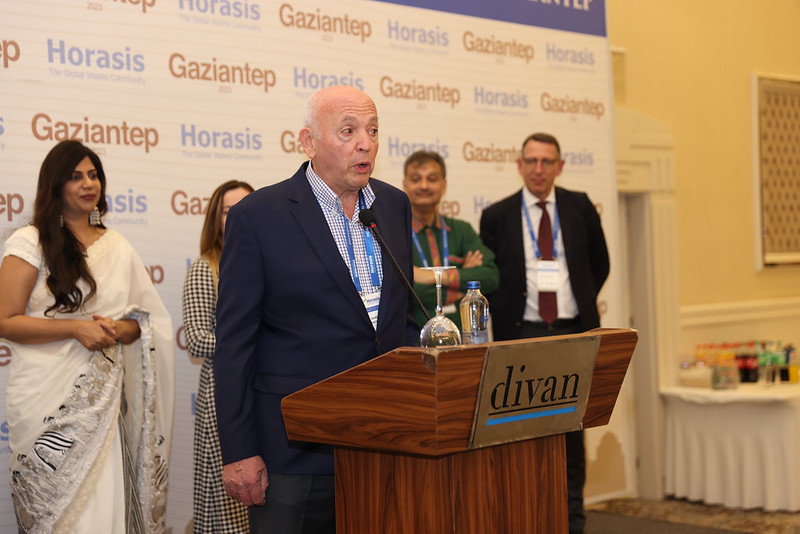
James Bernstein, Chief Executive Officer, Eniware, USA
By James E Bernstein, CEO, Eniware, USA
